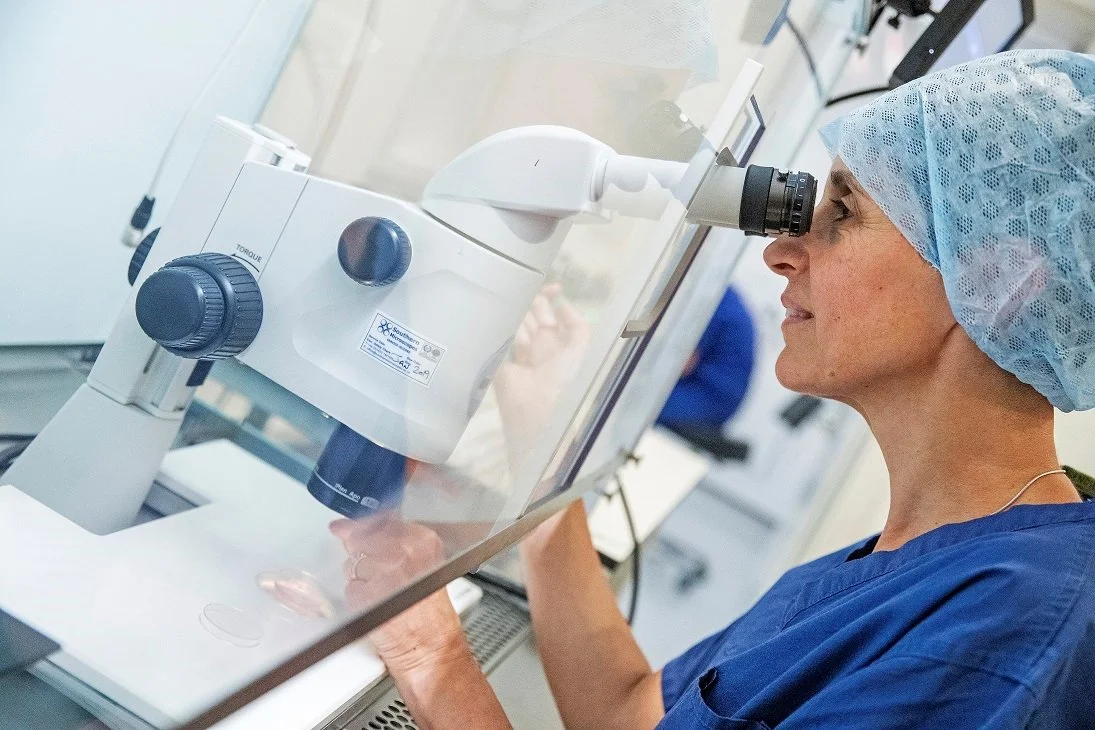BCRM seeks donors for new sperm bank
Bristol-based fertility treatment providers BCRM are appealing for local men to donate sperm for the newly-launched sperm bank at their state-of-the-clinic at Aztec West.
Most UK fertility clinics, which must be licensed by the Human Fertilisation and Embryology Authority (HFEA) offer access to donor sperm, but few clinics in this country have their own sperm bank.
Karla Turner, senior andrologist at BCRM, who is heading up the new initiative said: “Around one in seven couples struggle to conceive a baby and about half of these are due to problems with sperm.
“While some of these issues can be overcome using BCRM’s fertility services, sometimes our investigations reveal that a would-be father has no sperm. And, of course, donor sperm is also needed for single women and same sex couples.
“BCRM already has an in-house supply of donor sperm from external sperm banks which will continue to be available to patients, and it is indisputable that these external banks provide a valuable resource in an area where demand often outstrips supply.
“However, there is a potential drawback: such banks use donations which come from overseas and although donor samples sent to us from overseas must adhere to the same strict guidelines set out by the HFEA, these rules do not apply in other countries.
“This means that whereas in the UK an imported donor is legally allowed to help create no more than 10 families, that may not be the case in the donor's originating country, and so donor offspring from overseas donors may therefore find themselves with a substantial number of international half siblings.
“Against this background, we are aware there are recipients who would prefer to select a donor who comes from the UK, and BCRM’s new sperm bank will guarantee that."
The clinic is hoping to attract potential donors from all walks of life, backgrounds and ethnicities.
Karla Turner said: “They could be men who are already fathers, those who know friends or family who have struggled with fertility issues or men who just have a desire to help others.
“Giving the gift of life is a truly incredible thing to do.”
Potential donors, who need to be in good health and aged between 18 and 45, will be screened for a range of medical conditions, according to requirements set by the HFEA, in order to prevent the transmission of any infectious or inherited diseases from donor to recipient or to any child born as a result of donation.
Karla Turner said: “We record additional information such as a man’s interests and characteristics and interests; this is useful for potential recipients who are often keen to try and achieve a match to their own. And donors can also leave a good will message for any children born as a result of their donations, which is often greatly valued by the donor-conceived child.”
Since the anonymity of donors was removed was removed in 2005, children born due to sperm donation have the right of access to identifying information about their donor after the age of 18, although not all donor-conceived people will want to do this.
However, donors have no legal or financial responsibilities to any child created from their donation - only the person who received the donation, and their partner if they have one, will be the child’s legal and social parents.
A donor is not named on a child’s birth certificate, will have no rights over how the child is raised, and the recipients of donor sperm – that is the fertility patients - do not have access to identifying information.
Following screening, men who are accepted as sperm donors will usually be asked to donate on a weekly basis during a three-month window. Once the donation period has ended, it is essential to rescreen the donor 90 days later to exclude the presence of active infections before samples can be used in treatment.
Men who are accepted onto the donor programme can be reimbursed a fee of up to £35 per visit to the clinic to cover any out-of-pocket expenses incurred visiting the clinic, or if the donor is receiving IVF treatment at BCRM, they may be eligible for a treatment discount upon completion of the programme.
BCRM www.fertilitybristol.com, which is celebrating its 40th anniversary this year, has one of the best success rates with IVF and other fertility treatments in the UK and is involved in innovative research covering a range of fertility issues.
Men who wish to explore the possibility of becoming a donor can obtain further information by emailing SpermDonors@BCRM.clinic or calling the laboratory office on 01172 591159 ext7600






